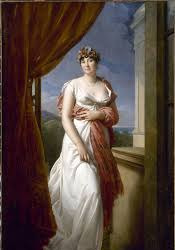#paul barras
Explore tagged Tumblr posts
Text
Carnot reaction against Tallien and Barras
Carnot, on the day he learned that he would have to work with Tallien, and later with Barras:

He must have missed the good old days of the Committee of the Year II even with the big political differences.
#frev#french revolution#lazare carnot#not a serious post at all#On the other hand#since he hated Barras#paul barras#jean lambert tallien
21 notes
·
View notes
Text
#paul barras#maximilien robespierre#augustin robespierre#bonbon robespierre#antoine saint just#georges couthon#philippe le bas#frev#frevblr#frev memes#frev shitposting#anyways bye
44 notes
·
View notes
Text

barras in his mini skirt or whatever
133 notes
·
View notes
Text


This was a primary need.
37 notes
·
View notes
Note
can draw Paul Barras and Fouche ?
*Best fwuends but Fouche betray him....huh. Actually you know what?... that's a formality!!😋*
They are indeed best fwuends:P

And happy new year!!
50 notes
·
View notes
Text

A picture featuring Paul Barras as a young man.
From: Octave Aubry, Napoléon, Editions Flammarion (1961)
#I couldn't believe it was him when I stumbled upon this pic lol#ngl he looks like the average 21th century mmorpg player#paul barras#barras#directoire#directory#frev#french revolution#frev art#art
50 notes
·
View notes
Note
What is your opinion on Paul Barras? Personally, I love him.
First, I'll state that I'm not an expert in Directory.
If we are talking about his politics, I have a negative attitude towards him because of his missions in Toulon and Marseille.
I don't really know much about his private life (except that stories about Tallien's wife and Josephine), because of the absence of particular interest.
The thing is I choose my faves by the grade of their republicanism (so my comfort cringe is Buzot) and my instinct tells me that he's not my type. Though I guess it's kinda funny to study him during the Directory.
9 notes
·
View notes
Text

Barras and snake ChéChé doodle.
46 notes
·
View notes
Text
How various people from 1790s France handle the BBC show The Traitors, an incomplete list:
Robespierre - getting this out of the way immediately: terrible. Could not hack being a traitor, is suspicious of basically everyone as a faithful. Is also suspicious to everyone because it's The Traitors and any kind of nd trait is picked up on and mob punished at the round table. Banished for being a Suspicious Autist by ep 4.
Marie Antoinette - bordering on Maddy->Aaron levels of paranoia towards Philippe Égalité, eventhough he's not doing any of the shit she's accusing him of. Gets murdered mid way through.
Louis XVI - flies under the radar for a bit by just agreeing with whatever the last person who spoke said. Barely contributes to round table discussions, comes back to bite him because they think he's being sneaky. Alyssa vibes.
Lafayette - alienates everyone by sticking by his own opinions and ignoring the fact that it's turning everyone off. Maddycore. 50/50 as to whether he's banished before he's murdered but he's not winning.
Marat - Murdered wayyy early for having too much influence over the roundtable.
Fouquier-Tinville - incomprehensibly, lasts longer than expected. The definition of flying under the radar.
Barras - Kierancore. Thinks he's in on the conspiracy. Isn't. Gets banished as a human sacrifice.
Talleyrand - Amanda vibes. Incredible for 4/5s of the show, sneakiness leads to an 11th hour double-cross from within.
Fouché - CRUSHES IT.
Danton - gets banished because people think arsehole = traitor despite all evidence to the contrary and historical precedent.
Saint-Just - keeps the Robespierre portrait like Andrea with Amos after he's banished. Is murdered super early if Camille is a traitor. If they're both faithful they're too wrapped up in beefing each other to work everything out. Gets banished after his allies leave/fall away.
Camille - deeply terrible at sussing out traitors whatever he thinks, but occasionally lands a hit so they don't feel comfortable murdering him. Gets banished bc you live and die by the way others perceive you and he not pretending to be your best mate whether he's a traitor or not.
#frev#marie antoinette#louis xvi#lafayette#marat#fouquier-tinville#talleyrand#joseph fouché#georges danton#camille desmoulins#maximilien robespierre#paul barras#louis antoine de saint just#the traitors
27 notes
·
View notes
Note
You could draw Fouché being a bi ally for Barras and one of his soldier boytoys lol
this made me laugh so much when i initially saw it haha :)

I didnt know any soldiers so i put David i hope it makes it funnier
64 notes
·
View notes
Text
I looked at Barras' Wikipedia...and I just saw that he was probably gay or bi...I really didn't expect it at the time
3 notes
·
View notes
Text
Félix Le Peletier and Thérésia Tallien, then the wife of the Marquis de Fontenay, had an affair in 1789.


Several sources, including historian Laurence Constance Vaet, confirm that Le Peletier was romantically involved with Thérésia. At the time, she was trapped in an arranged marriage to the Marquis de Fontenay, which had been imposed on her at the age of 15 and which she reportedly did not enjoy. In 1789, Félix Le Peletier was 23 years old, and Thérésia was just 16. He was a frequent guest at her political salons.
Some sources—though I still need to verify their reliability—suggest that Le Peletier was, for a time, her favored lover before being replaced by Alexandre de Lameth. There are also claims that he proposed marriage to her and formally approached her parents, who rejected his proposal in favor of the Marquis de Fontenay. I remain unsure how credible these reports are.
There is also speculation that Le Peletier might have been the biological father of Thérésia’s first child, Théodore. Personally, I doubt this. If Le Peletier had truly been the father, I believe he would have—if not acknowledged the child openly—at least ensured that his son lacked nothing. Yet, when Thérésia was arrested during the Revolution, he made no effort to help her, at least as far as I can tell. Nor is there any indication that she tried to intervene for him during the Babeuf Conspiracy, when he was threatened with deportation, or later during the White Terror, when he was at risk of being killed . This suggests that their political paths had diverged and that they had effectively severed ties.
If Théodore had indeed been his son, Le Peletier could have discreetly checked on the child’s well-being. But there’s no sign of such concern. In contrast, he took responsibility for his daughter Félicité (whose mother was Marie-Adélaïde Guénon). I believe he would have done the same if Théodore had been his own.
It’s understandable that Thérésia and Félix were drawn to one another, even if they both had multiple lovers. Although in 1789 neither had yet developed the strong political identities they would become known for, both seemed unafraid of risk and danger. Historian Françoise Kermina noted that Thérésia had a taste for danger and courage: she used her position in Bordeaux to pursue her own political goals and notably refused to testify against Jean-Lambert Tallien, even though doing so might have secured her release.
Le Peletier, for his part, was a committed Babouvist during a highly dangerous time. Years later he openly defied the Consulate alongside his friend Antonelle, to the point of being pursued by Bonaparte’s police even before the Rue Saint-Nicaise assassination attempt (which, although perpetrated by the royalists, was the pretext for Bonaparte to get rid of the Jacobins). He taunted the Minister of Justice by sending a letter announcing his own escape, and despite having powerful friends to protect him, he continued provoking the authorities. He was eventually banned from Paris, feigned illness to pretend he had left politics, all while staying in contact with key figures in the radical Société des Philadelphes, likely preparing to strike at the right moment. As mayor under Louis XVIII, he used his office to disrupt the regime while delivering subtle yet sharp anti-monarchist speeches. He endured four years in exile, and upon his return, immediately resumed his opposition to the monarchy.
Both showed remarkable resilience. Thérésia survived prison, rose to fame under the Directory, and even after falling from grace under Bonaparte, achieved her goal of rejoining the nobility by marrying the Prince of Caraman-Chimay. She adapted to aristocratic life with ease. Le Peletier escaped persecution after the Babouvist trials, avoided deportation during the Consulate, and again survived during the White Terror. His survival was due in large part to his connections—first with Carnot during the Babeuf affair, later with his childhood friend Saint-Jean d’Angély (a State Councillor under Bonaparte), and through his uncle, who was a friend of Count Beugnot, Prefect of the Seine-Inférieure.
Thérésia and Félix were both prominent political actors during this era. Interestingly, both associated with opponents of Bonaparte, though from very different ideological camps—Thérésia leaned royalist and conservative like madame de Stael (an orientation she adopted partly due to her disgrace under Bonaparte), while Le Peletier was aligned with Jacobins.
In some respects, they resembled each other. Yet I wonder whether, by the end, they viewed one another as enemies. Thérésia, despite her chameleon-like adaptability, remained fundamentally royalist and conservative. Le Peletier, in contrast, was a deeply committed republican, far to the left—precisely the kind of revolutionary Thérésia despised. It's unlikely he ever forgot that royalists had murdered his brother. He was profoundly close to the Babeuf family—he even accepted Babeuf’s dying request to care for his family— and remained tightly linked with the Montagnards, who were fierce opponents of Thérésia. After all the Gracchus Babeuf ( and so Marie-Anne Babeuf) despise the couple Tallien as you can see there https://www.tumblr.com/nesiacha/784328603622047744/babeuf-article-against-tallien-couple-and-freron?source=share.
Had the Babouvist Conspiracy—of which Le Peletier was a central figure—succeeded, it would have marked the end of Thérésia’s political career, as well as that of Barras and many others. Ironically, I don’t believe Carnot would have been a "target", as many Babouvists, including Babeuf, Buonarroti had nothing against whim while Le Peletier, appeared to hold him in some regard and had no real quarrel with him as you can see there https://www.tumblr.com/nesiacha/770487228804759553/f%C3%A9lix-lepeletier-de-saint-fargeau-un-personnage?source=share ( it's talk about the relationship between Carnot and Le Peletier) .
Le Peletier used his honestly acquired inheritance to support the underprivileged, unlike Thérésia, whose wealth was reportedly obtained through corrupt means—a criticism made even by Françoise Kermina. He used his resources to assist surviving Babouvists and their families, many of whom had been ruined after the trials, and possibly even helped care for Charles Germain’s three-year-old son, left behind due to his father’s deportation. It’s difficult to believe he would have respected Thérésia’s lifestyle.
It would be fascinating to discover more about the time when Thérésia and Félix were a couple. Some have speculated about what might have happened had they married. I doubt it would have lasted—despite Le Peletier’s remarkable ability to survive politically and reinvent himself in nearly every situation, unlike Jean-Lambert Tallien from which he never recovered from his political fall. But then again, Le Peletier was a different kind of man entirely, incomparable to Tallien.
P.S. According to Laurence Constant in the Annales Historiques de la Révolution Française, there was a rumor that Félix Le Peletier once had an affair with Joséphine de Beauharnais. While Le Peletier did have multiple lovers, even Constant notes that this is unconfirmed.
One last note: I felt quite uncomfortable with the age at which Thérésia began her affair with Le Peletier. She was only 16, and he was 23. I understand that such age gaps were more socially acceptable at the time—and it's certainly less extreme than, say, Fréron, who had a 13-year-old mistress—but I still find it unsettling, especially given how young Thérésia was.
Source:
#frev#french revolution#history#france#napoleonic era#restauration of bourbons#felix lepeletier#theresia cabbarus#jean lambert tallien#napoleon bonaparte#louis xviii#paul barras#lazare carnot#babeuf#josephine de beauharnais
5 notes
·
View notes
Text



Isn’t this Barras hanging out at the Coronation?
Whatchya doin’ there Paul?
#napoleon bonaparte#napoleon#bonaparte#hey I think that’s Barras#where is Barras?#Paul Barras#Napoleon trailer
22 notes
·
View notes
Note
Someone told me a story about Barras following Robespierre because he was worried for him. They didn't remember the whole story, but Robespierre wasn't pleased to be followed at night. Do you know what it might refer to?
The story originates from Barras’ memoirs:
At a time when the Convention was already in a high state of alarm there circulated a list of five or six deputies. It was rumored that Robespierre intended to have them arrested as a little treat to himself, alleging their immorality as the motive of this proposed act of severity. Robespierre, informed of what was being imputed to him, asserted that such an idea was foreign to him, and, desirous of hurling it back at its authors, he maintained that it had originated with the majority of the Committee, which, he alleged, had pushed its cruelty so far as to seek to include thirty-two deputies in its latest proscription list. In vain did those who spoke in defence of Robespierre's innocence of the idea and his humanity protest that it was he who had opposed this more than rigorous measure, that he had torn up the list with his own hands and, apostrophizing the Committee, had said: "You are seeking to still further decimate the Convention; I will not give my support to such action." Robespierre had indeed spoken these words just as, making an attempt to leave the Committee, he had opened the door with the intention of being heard by the deputies and a large number of citizens, who, attracted by the noise of a quarrel in the bosom of the Committee, were waiting in the antechamber for the purpose of gratifying their curiosity thus aroused. Collot d'Herbois, furious at such hypocrisy, had sprung after Robespierre, seized him by his coat, and, dragging him towards him in order to bring him back into the room, exclaimed in his resounding voice, which, the door remaining ajar, was heard by all, both the Committee and the people outside: "Robespierre is an infamous scoundrel, a hypocrite; he seeks to impute to us that of which he alone is capable. We love all our colleagues; we carry all patriots in our hearts. There stands the man who seeks to butcher them one and all!" Thus vociferating, Collot d'Herbois still retained his hold on Robespierre's coat-collar. As I had at that very moment left the Convention, on my way to the Committee, I became a chance spectator of this fearful scene, whose violence was still not the greatest crime in my eyes. Behind it stood revealed the plot of premeditated vengeance, far worse than a mere outburst of anger. I was among those who compelled Collot d'Herbois to release his hold of Robespierre, who thereupon declared that he could no longer sit with his enemies, styling them a party of septemvirs, whom he would unmask and fight in the body of the Convention. He then took his departure, in spite of the entreaties of the Committee, which, having been unable to conquer, sought to retain him in its midst. "Let him go his way," I said to those surrounding him. All my interest in him lay in the fact that I did not wish to see him strangled on the spot by a stronger man, and one perhaps as wicked as himself. I followed him for a short distance in order to see him safely home; he was trembling as he walked along. Noticing that I was following him closely, he gave me an uncertain look, seeming at one and the same time to thank me for having rescued him but a few moments before, while reproaching me with the humiliating position in which I had seen him. I could just make out from a few sentences he ejaculated the words "Jacobins" and "Cordeliers: we shall see." I left him at the door of his house and returned to the Convention, where I told in confidence what had taken place.
Memoirs should in themselves always be treated with caution, and those of Barras are absolutely no exception. According to the article Barras au neuf thermidor (1977) by H. Monteagle, these memoirs were first and foremost not written by Barras himself, but by Alexandre Rousselin (another former Convention deputy) who based them on notes left by Barras. Here is the note describing the same incident, but as can be seen, it doesn’t actually mention Barras following Robespierre home after it…:
This fight between Robespierre and Collot is recounted in more detail in another autograph note by Barras. After Robespierre opposed a new measure of proscription, saying: "You are decimating the National Convention, you are arresting citizens whose republican energy you fear," the boor Collot d'Herbois threw himself on him and seized him. He was about to throw Robespierre out the window when the latter's friends freed him. This scene was followed by discussions. Robespierre observed that he could no longer sit with executioners, that he was retiring and that he would report to the Convention. The committee which foresaw his fall then opposed the exit of Robespierre. The proscription list was torn up in his presence. The hypocritical Carnot and the bland Couthon told him that Collot's outburst of anger was disavowed by the Committee, that the publicity of what had just happened would ruin the government committees and the Republic. He was urged to make the sacrifice of all resentment, that this proof of patriotism was expected from him. A furious Collot apostrophized the two mediators, complained of the weakness of his colleagues and left the session. Very affected Robespierre alternately observed his adversaries. He said to them on leaving: “You would have made me look mad. If the abortive plan to throw me through the window had taken place... I see here beings more atrocious than the one who was to execute it; he walked out ashamed of having accepted this assassination.” Robespierre retired and did not reappear for two months on the committee. Robespierre was a sober republican, austere in his morals, but with a pride that could not stand rivalry...
According to Monteagle, Rousselin did take big liberties with the notes Barras left him, so perhaps the story of B following R is one of them? Looking at Barras’ wikipedia page it would also appear there exists three different versions of his memoirs (the two extracts above come from separate memoirs) so it all seems a bit messy to me… My bottom line would at least be to treat that anecdote with caution.
#paul barras#robespierre#ask#the fact that the collot trying to throw robespierre through a window story actually originates from barras himself though…
19 notes
·
View notes
Text
Paul Barras: An Unsung Hero?
History, akin to an antique mystery novel, boasts a cast of characters both celebrated and overlooked. In the tapestry of the French Revolution, one such figure emerges—Paul Barras. Was he merely a face in the crowd, or could he be the unsung hero, overshadowed by time? Join us, history enthusiasts and novices alike, as we delve into the enigma of Paul Barras. A Glimpse into Barras’ Past Paul…

View On WordPress
1 note
·
View note
Text
NAPOLEON, de Ridley Scott c'est au cinéma. Chef d'oeuvre ou nullité?
Le jugement est difficile pour ce film qui mélange des choses très positives, comme le talent indéniable d’un réalisateur, et une vision d’un des hommes politiques les plus importants pour la France. Vous ne verrez pas l’histoire de Napoléon de la naissance à ses derniers instants. On entre dans l’histoire de l’homme alors que l’on a les images des derniers instants de Marie Antoinette,…

View On WordPress
#Ah Ca Ira&039;#Alien#Blade Runner#Edith Piaf#Film annonce Napoléon#Gladiator#Guy Courthéoux#Joachin Phoenix#Legend#Marie Antoinette#Napoléon#onsortoupas#Paul Barras#Ridley Scott#sACHA gUITRY?#Seul sur Mars#Si Versailles m&039;était conté#Tahar Rahim#Thelma & Louise#Vanessa Kirby
0 notes